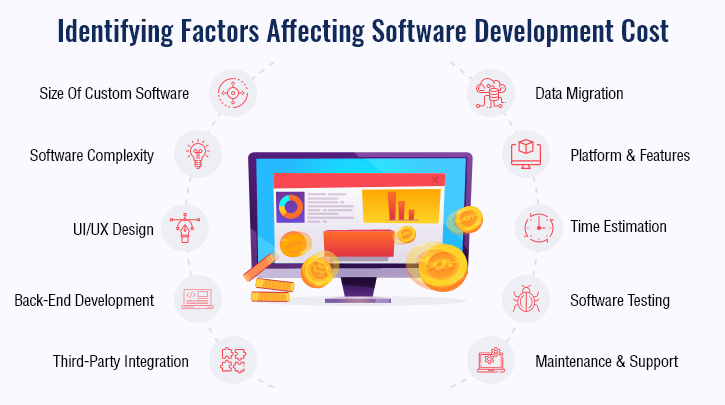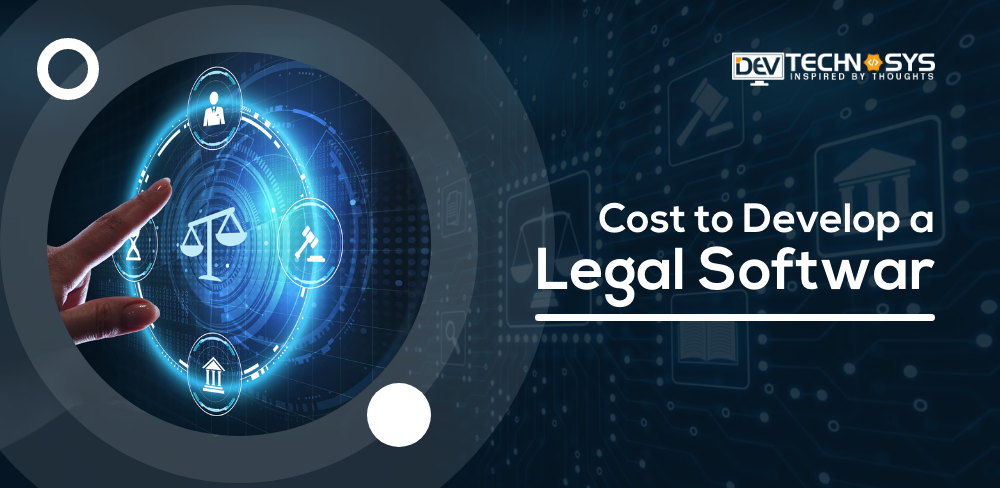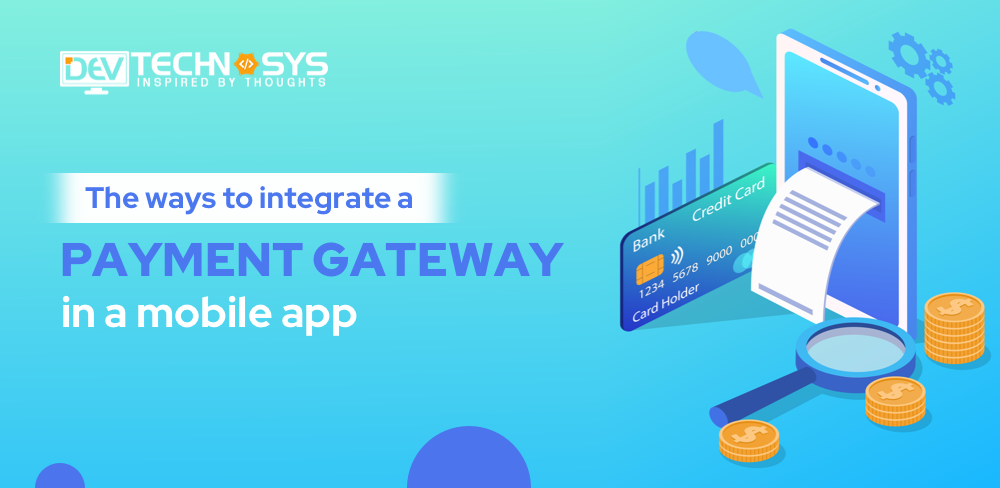“Explore The Cost Of Developing Cutting-Edge Legal Software For Streamlined Operations.”
Are you someone who wants to develop legal software? As we all know, the demand for legal software is increasing day by day. When it comes to development, many people start wondering about the cost to develop a legal software.
This blog digs into the many factors affecting the cost to develop legal software. We look at everything – from the knotty parts of coding to designing a user-friendly interface, getting licenses, and continual upkeep.
We’ll closely explore each aspect. Learn about the various factors involved in the cost to develop legal software that meets industry and regulation needs. So, if you’re someone who wants to develop legal task management software but is wondering about its cost, Come along with us as we untangle costs, factors, and main points that shape the creation of legal software.
Table of Contents
Introduction of Legal Software
Legal software is a specific tech tool used in the law sector to make legal tasks more accessible and more efficient. It includes things like case handling, auto-form-filling, timekeeping, invoicing, and law research software.

These tools allow lawyers and law officers to be more precise and orderly in their everyday work. Case management software solutions can also have features for following rules, finding electronic info, and managing contracts. It helps lawyers deal with strict regulations and manage cases better.
10 Major Factors That Affect The Cost To Develop A Legal Software
Without wasting your time, we want you to know the cost to develop legal software. This section has essential data that will take you toward the cost to develop legal software. Making Legal case management software includes many things that can change how much the project will cost.
It has how complex the software is and what specific things lawyers need.In this discussion, we will explore 10 significant factors that influence the cost to develop legal software.

1. Scope and Complexity of The Software:
Legal software’s role and intricacy matter a lot when figuring out the cost to develop legal software. A basic system to manage cases will usually be less pricey than a full-scale law practice management system, which has things like automated documents, collaboration with clients, and complex analytics. If you need more things the software can do, expect the legal management software cost to go up.
2. Customization and Integration:
Frequently, you’ll need legal software to bend to the particular needs of a law firm or legal department. Tailoring might involve adjusting the legal app to fit unique workflow, templates, or requirements for reporting. Plus, joining the legal practice management software up with the stuff you already have, like software dedicated to managing documents or bills, can increase the complexity and cost to develop a legal software.
3. Regulatory Compliance:
In the world of legal case management software for government, adherence to rigorous regulatory and compliance standards is paramount. Alignment with regulations like GDPR, HIPAA, or industry-specific legal norms holds substantial sway over the developmental trajectory. Upholding compliance demands extra time and resources, thereby inflating the cost to develop legal software.
4. User Interface & User Experience
In the world of legal practice, the interface and experience hold significant importance for professionals grappling with convoluted data and detailed workflows. Crafting an intuitive, user-friendly interface aimed at boosting productivity and minimizing learning hurdles may increase the software product development costs.
Engaging in user testing and embracing iterative design processes stands as a pivotal path in attaining a software product finely tuned to the requisites of legal professionals.
5. Security Requirements:
Legal software handles private and sensitive details, making safety a key concern. Putting in strong safeguards, like data encryption, fortified sign-in, and control on access, brings more intricacy and increases the cost to develop legal software. Following industry rules and top methods for data safety is necessary.
6. Mobile Compatibility:
Legal workers increasingly depend on mobile tech. Creating such software that also works on mobile is now required. Designing and refining software for handheld devices, assuring a smooth user experience across varying tools, can increase the total software development cost.
7. Data Migration:
Law businesses frequently have old data stored in diverse formats and systems. Shifting that data from older systems to the new legal software can be complicated. It is vital to know that the cost of developing legal software depends on the volume of data migration, its complexity, and the requirement for data cleansing and transformation.
8. Training and Support:
Educating legal experts to operate the fresh software and offering continuous help are vital parts of a successful setup. When planning the budget, account for the cost of learning materials, tutorials, and help tools. A well-crafted education campaign helps ensure users embrace the software and helps foster overall success, which will automatically increase the cost of legal management services.
9. Scalability:
Suitability to expand should be a feature of law software to meet the growing needs of legal offices or divisions. Preparing for expansion means constructing the software framework to manage more data, user numbers, and new functions later. Creating a system that can grow from the start might demand more upfront expenses but can save funds in the long term as it evolves along with your business.
10. Legal Industry Expertise:
Teams of software product developers and project managers who know the legal field can more easily grasp its specific needs and hurdles. Having a squad that gets legal lingo and procedures can make development smoother, cut down on mix-ups, and lead to better results. But remember, this specific knowledge often requires a more significant investment.
What is the Average Cost To Develop Legal Software?
Legal software development has many influencing factors like the app’s size, its features, tech stacks, software development services providers, and complexity. The average cost for creating legal software generally lands between $8,000 to $30,000, and this depends on the kind of legal software being made.
Category |
Cost Range |
| Planning and Design | $2,000 – $5,000 |
| Development | $10,000 – $30,000 |
| Testing and QA | $5,000 – $8,000 |
| Deployment | $3,000 – $7,000 |
| Security and Compliance | $5,000 – $8,000 |
| Maintenance and Support | $5,000 – $10,000 |
| Marketing and Launch | $10,000 – $15,000 |
The cost to hire a software developer can also affect the budget. So ensure that whichever developer team you are hiring has years of experience in making legal software at affordable rates. These are potential costs for making legal software, set out in a table. Knowing the financial needs for legal software is key to intelligent planning.
How To Reduce Cost to Develop a Legal Software?
Now that you know the cost to develop legal software, you must be thinking of how you can reduce it. It is important to keep in mind that creating less expensive legal software is key for smart work and keeping to a budget.
Here are eight tactics to save on legal software development costs:
1. Define Clear Requirements:
To reduce the cost to legal software, you should focus on prior to starting, spending ample time outlining the needs for the legal software. Thoroughly grasp project dimensions from the input of end-users, legal gurus, and stakeholders. It will help you avoid complex, costly changes later on in development.
2. Agile Development Methodology:
It is vital to know that you should embrace adaptive development similar to Scrum. Such processes allow for step-by-step development, letting your CRM software development services providers adapt to changes with ease.
It empowers teamwork, flexibility, and early delivery of helpful features. By breaking down the development process into smaller, manageable sprints, you can mitigate risks and address issues promptly, reducing the overall legal solutions software cost.

3. Open Source Technologies:
Leverage open-source technologies and frameworks to reduce software development costs. Open-source software is often freely available, and communities of custom software development company actively maintain and update it.
Using open-source solutions can save on licensing fees and development time. However, it’s crucial to assess the licensing terms and ensure compliance with legal requirements when incorporating open-source components into your legal software.
4. Outsourcing Development Company:
Consider outsourcing certain aspects of the development process to reduce costs. Outsourcing allows you to tap into the expertise of an experienced legal software development company at a potentially lower cost compared to hiring an in-house team.
Get in touch with a trustworthy enterprise software development company that has experience in the field of legal software development. Clearly relay what you require, your anticipations, and your important dates. It helps keep everything running smoothly and keeps misunderstandings at bay.
5. Utilize Cloud Services:
It is crucial to know that legal software solutions benefit from cloud services. It can help you save money on infrastructure and boost your scalability. Cloud platforms like Amazon Web Services (AWS) or Microsoft Azure are cost-effective for hosting legal software applications.
Pay-as-you-go pricing offered by cloud services lets you add resources based on your needs, avoiding big, initial investments in hardware and infrastructure, saving you the cost of legal tech.
6. Prototype and User Feedback:
Create early prototypes or minimum viable products (MVPs) in the development process. This lets you gather valuable user feedback. Get users involved early to spot and fix problems quickly. It can cut down on the cost to build a legal app changes later on.
User input also makes sure the final product is what legal pros really need. It lowers the chance of having to redo work and makes the best use of dev resources.
7. Continuous Testing and Quality Assurance:
Use a robust testing and quality check process all through the dev cycle. Finding and fixing problems early is cheaper than fixing them after the software goes live. Automated test tools make the testing process faster and help keep software quality high.
Testing at its fullest is crucial for legal software. It helps find and fix any problems. That way, the law software is top notch and needs few changes after it’s released, which will save you a bundle of spend on custom legal software solutions.
8. Compliance and Security Considerations:
Think about following rules and keeping things safe early on when making the software. Legal software holds confidential information, so safety is critical. Not following the laws can lead to sturdy fines. By thinking about this early on, you won’t have to make expensive changes later.
Stay updated on industry norms, laws about data, and good methods. Updating and support come with software maintenance costs, which you can get from software maintenance service providers.
How Dev Technosys Can Help You In Developing a Legal Software?
At Dev Technosys, we have a team that offers you more than 10 years of experience. We are prepared to make your law software dreams come true. We’ve built a reputation for giving first-class law software solutions. These solutions are crafted specifically for our customers’ unique needs. We’re different because we deeply value quality, new ideas, and keeping our customers happy.
When you choose Dev Technosys, it’s not just about the rich experience; it’s about having a partner who truly wants your law software project to be beyond what you imagined. We’re ready to tackle the intricacies of law industry software development, providing you with a strong and dependable product.
Frequently Asked Questions
1. How Much Does It Cost To Build Legal Software?
The scope, features, and custom software development company hourly cost determine the cost to develop legal software. More sophisticated systems can cost up to $25,000, while essential legal software may only start at $8,000. Complete project specifications are necessary for accurate estimations.
2. How Much Time Is Needed To Develop Legal Software?
Depending on the features and complexity, development can take anywhere from six to eighteen months. While more complex solutions require more extensive development and testing phases, simpler systems might be completed faster.
3. What Are The Advantages Of Developing Legal Software?
Developing legal software improves accuracy, expedites case management, increases efficiency, and automates procedures. It helps legal firms manage intricate legal matters, cut down on mistakes, enhance teamwork, and maintain their competitiveness in a legal market driven by technology.
4. Why Choose Dev Technosys To Build A Legal Software?
Legal software development is where Dev Technosys shines because of its experience, track record, and client-focused methodology. Their knowledgeable staff guarantees customized solutions, prompt delivery, and continuous support, which makes them an excellent option for legal tech projects.
5. How Can Legal Software Be Made More Profitable?
Make money with legal software by charging for licensing, using tiered pricing based on features, or using subscription models. Furthermore, contemplate providing value-added services, like training or superior support, in order to augment revenue streams and accommodate a variety of client requirements.


























